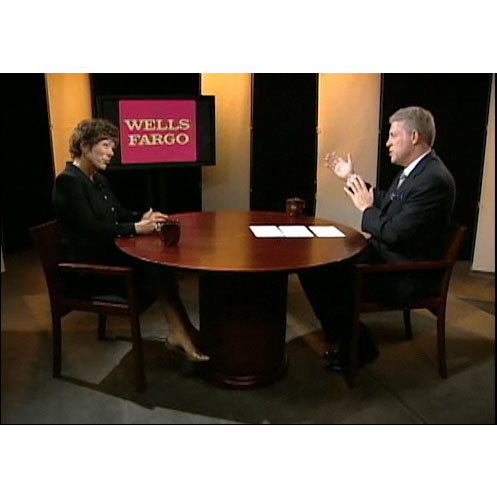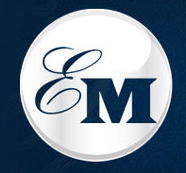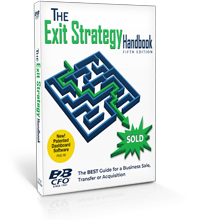
by Ania Kubicki | Jul 17, 2012 | Archives
By Jasen Lee, Deseret News SALT LAKE CITY – A Pleasant Grove businessman has settled a lawsuit, agreeing to pay $220,000 to his former company for alleged copyright infringment. B2B CFO filed a lawsuit in 2009 against Ken Kaufman and three of his entities, including CFOWise, claiming copyright infringement, misappropriation of trade secrets, breach of fiduciary duty as well as Lanham Act violations and Federal RICO violations. According to a news release, Kaufman – who was a partner in the firm – left B2B CFO to form CFOWise in 2007, and used copyrighted intellectual property owned by B2B CFO in his new business. In agreeing to settle the lawsuit, Kaufman paid $220,000 to B2B CFO, and also admitted to improper conduct. “For business reasons, there was an admission included in the settlement,” Kaufman told the Deseret News. “By executing this Agreement, Defendant Kenneth A. Kaufman admits that he copied the intellectual property of B2B CFO, LLC and B2B CFO Partners, LLC, in violation of federal civil copyright law,” the settlement states. “Our insurance company wanted to be done with it,” Kaufman said. “I was excited to be done with it … and it was an opportunity to put it behind us and move on.” In a statement, Jerry L. Mills, founder and CEO of B2B CFO, said, “We are pleased that the Federal Court upheld the validity of our intellectual property. Intellectual property misappropriation is a serious problem in this country and businesses need to know how to protect themselves and understand the legal process which is very complex and can be quite costly.” Copyright 2012, Deseret News Publishing...

by Ania Kubicki | Jul 5, 2012 | Archives
In this Wells Fargo podcast series, Jerry Mills answers questions relating to the parameters of preparing for a cash crunch. ...

by Ania Kubicki | Jun 6, 2012 | Archives
In this segment of the Wells Fargo Business Insight podcast series, Jerry Mills discusses how businesses can use a couple of strategies to enhance their cash flow including improved management skills. ...

by Ania Kubicki | Apr 12, 2012 | Archives
Have you ever asked yourself the question, “I am making a profit, but I don’t know where the cash is?” Many business owners tend to manage their business strictly from the income statement. An income statement is very important to a business as it provides a historical view of what transpired in the company over a period of time and gives the business owner, banks and other investors a better perspective of what contributed to the net profit or loss reported. However, the income statement does not necessarily translate into an increase or decrease in cash. Understanding how the income statement results will impact the cash flow of the company is equally important, yet often ignored. Anyone running a business needs a clear vision of how his/her business decisions affect the finances of the company to achieve the desired success desire. Cash is king. Every business owner should have a clear understanding of the financial implications of his/her business decisions to increase the chance of success. If you don’t take control of your cash, it will most certainly take control of you. Here are some common issues that may affect the cash flow of the business: 1. Invoices issued upon the shipment of product or the delivery of services are delayed because the supporting information has not been processed in the accounting system on a timely basis. 2. Past due receivables are increasing because customers are experiencing cash flow issues themselves. 3. Customers are paying their invoices short because of product quality issues or invoicing errors. 4. Inventory is increasing faster than sales because of over-purchasing inventory components in...

by Ania Kubicki | Mar 29, 2012 | Archives
Now that we’re coming out of a recession, everyone’s business seems to feel pinched and contorted. Money is flowing again, but in odd ways. According to Mark Derr, most businesses have gone too crazy cutting expenses – and they’ve cut the very infrastructure that was making them money in the first place. Mark, who works out of Scottsdale, has seen this countless times as a consultant with B2B CFO, which acts as a chief financial officer to all sizes of business. He says that the bean counters in these businesses — sometimes even the founder — got caught up in cost-cutting without taking a strategic approach. Good investments in profitability got tossed out alongside the garbage in a full-scale war on expenses. “When you’re a numbers person, you’re looking at expenses,” Derr explains. “But the reality is it all starts at the top line: revenue. If you ignore the business development, marketing and sales, then your business is going to fail.” You can’t cut your way to profitability. Derr says that all businesses go through what his company founder, Jerry Mills, calls the “Danger Zone.” Companies bootstrap their way to initial success, but that infrastructure begins to wear with the increased demand. By infrastructure, Derr is referring to your business development and marketing staff, your HR team and physical items such as equipment or computer systems. To alleviate the burden, the company starts to spend money on infrastructure, but it quickly begins to run out of cash because it isn’t profitable enough. “It’s not surprising to hear a business owner say, “I don’t know where I’m going to get...

by Ania Kubicki | Mar 22, 2012 | Archives
Welcome to the Eventual Millionaire Podcast. I’m Jaime Tardy and today we have Jerry Mills on the show. Jerry runs B2B CFO so Business to Business CFO, a company that provides part-time CFO services to companies. I really appreciate him being on today. Thanks so much for coming on the show, Jerry. JERRY MILLS: Glad to be here. JAIME TARDY: Perfect. So let’s start off with how did you even get started becoming business owner? Was it CFO Services or was it something beforehand? JM: No, it has always been CFO Services. I saw the need for this kind of business back in the mid ‘80s. I spent several years researching it and developing a business plan and launched it in 1987. So I have been doing this since 1987 and that’s really the only business I have ever had. JT: So did you always sort of know yourself as entrepreneurial or what made you start it to begin with? JM: Well there are a couple reasons that I started. One, I saw the need; I saw that there was a market niche, if you would. I saw clients being underserved in this area. The other area that caused me to start it was in my previous employment. I saw a lot of professionals when they hit their mid 50s being laid off by their employers and I wanted to build a company that would allow me to have job security when I hit my 50s. I didn’t feel like it’s very wise, you know, I’m married, have four children and I just didn’t feel it was wise to...









